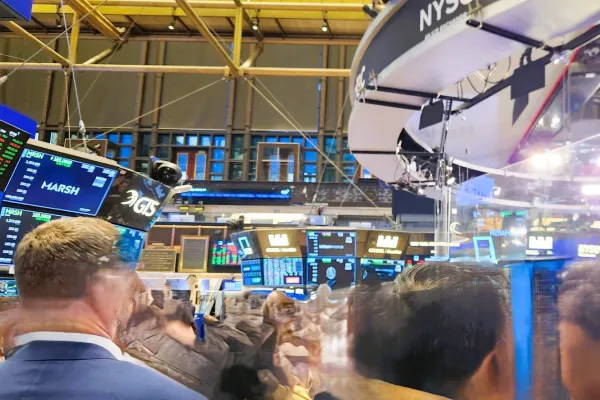These aren’t the Middle Ages and hardly anybody’s afraid to say what they think anymore. Still, we have jesters, and you’ve gotta hand it to the Daily Show's Jon Stewart for carving out a program that’s so spot-on sometimes that it’s a better source for news than, oh, the news.
Last Wednesday on Stewart’s Daily Show, the guest was Justin Fox, author of the timely “The Myth of the Rational Market: a History of Risk, Reward and Delusion on Wall Street,” which for some reason has been a hot seller lately, contending (and I paraphrase wildly here) that monkeys might do a better job of running the markets than humans have done.
HOUSE-FLIPPING IN FLORIDA
Stewart kicked off his interview with Fox by astutely asking the question on everybody’s mind: “Are you suggesting, sir -- may I call you sir? -- that houses in Florida really don’t double in value every year?”
Precisely! And Fox went on to explain how he thought the whole markets-behave-rationally school of thought that arose in the 1960s out of MIT and the University of Chicago was inherently flawed, to put it nicely – total (expletive deleted), to put it bluntly. The hole in the theory of rational markets is that great waves of people can, and do, go stark-raving stupid when it comes to money. Mindless herd behavior begets mindless market bubbles. We saw it in the dot.com boom and again in the housing run-up. Of course many individuals (bankers et al) got filthy rich off the bubbles, so there was a silver lining in some cases to the madness.
“Housing and stocks,when they go up like that,” Fox said, “it’s a lot of fun for lots of people.”
His dashing of the myth of rational markets isn’t entirely original. Alan Greenspan conceded as much in October -- coming to the realization a little late in life (he’s 83) -- and George Soros wrote a book about it last year.
Stewart, being the polished newsman, er, comic, that he is, steered Fox toward the future: “Is this, then -- in your mind -- a failure of regulation?”
REGULATORS HAVE FEELINGS TOO
Yeah, kind of, Fox answered. “Regulators get caught up in the same nonsense markets do.”
It seems that bank examiners, SEC gumshoes, Treasury police, members of Congress and White House aides -- why, they’re mortal too. The best way to handle the whipsaw of bubble-to-burst is either by turning everything over to super-intelligent cyborgs that have yet to be invented or by imposing what Fox calls some “simple, dumb rules -- what we got in the 30s.”
“You look back at the 19th century, we had these bubbles and crashes all the time,” noted Fox, and then the Big One hit circa 1929 and it took the U.S. a decade and a world war to pull out of it. The regulatory legacies of the Great Depression brought a certain staid predictablity to the markets, and then came modernity, which included the repeal of the Glass-Steagall Act of 1933 that separated commercial and investment banking as a way to control systemic risk.
Putting Glass-Steagall back together, Fox argues, would go a long way toward mitigating herd foolishness by “human-proofing” the financial system.
Maybe only cyborgs would be better. Or monkeys.
And that’s no joke.






